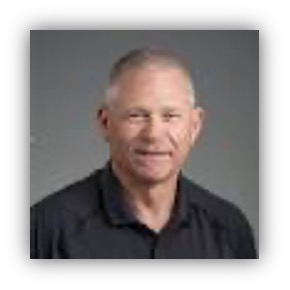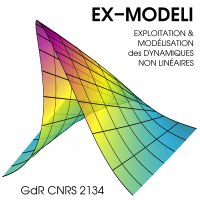We have the pleasure to host Steve Shaw from the Florida Institute of Technology the 21st Septembre 2023 for a seminar about Using nonlinearity to improve the precision of time-keeping devices.

Abstract: Small vibrating structures, with features on the scales of micro- and nano-meters, are playing increasingly important roles in sensing and time-keeping technologies. The success of these micro/nano-electro-mechanical-systems (M/NEMS) in sensors has been transformational and a similar shift is occurring for MEMS-based frequency generating elements that are used in cell phones, computers, and automotive safety systems. These devices can realize resonances in the radio frequency range with quality factors of 103-106 and are easily integrated with electronics. However, these resonators are highly susceptible to noise and nonlinearities, which impose limits on their precision. This presentation will provide an overview of nonlinearity and noise in M/NEMS and describe how a fundamental understanding of these effects can suggest means for improving performance by taking advantage of features such as non-monotonic backbone curves and mode coupling. Results from both analysis and experiments will be presented.
Acknowledgments: This work is currently supported by DARPA and the BSF and has been previously supported by the US NSF. The work is done in close collaboration with groups led by Mark Dykman at Michigan State University, Tom Kenny at Stanford University, Daniel López at Penn State University, Oriel Shoshoni at Ben Gurion University, and Philip Feng at the University of Florida.
Bio: Steve Shaw is Professor of Mechanical Engineering at Florida Institute of Technology, Melbourne, Florida, USA. He is also University Distinguished Professor Emeritus in the Department of Mechanical Engineering and Adjunct Professor of Physics and Astronomy at Michigan State University. He received an A.B. in Physics (1978) and an M.S.E. in Applied Mechanics (1979) from the University of Michigan and a Ph.D. in Theoretical and Applied Mechanics from Cornell University (1983). His research interests focus on the understanding and utilization of nonlinear dynamic behavior in engineering systems. Current applications include the interplay of nonlinearity and noise in micro/nano-scale resonators and the development of torsional vibration absorbers for automotive power/drive-train components. Steve’s expertise is primarily in modeling and theory, and he collaborates closely with experimental groups at universities, industries, and national labs, as well as with other theorists. He has held visiting appointments at Cornell University, the University of Michigan, Caltech, the University of Minnesota, the University of California-Santa Barbara, and McGill University. Steve is an ASME Fellow, recipient of the Henry Ford Customer Satisfaction Award, the ASME Henry Hess Award, the SAE Arch T. Colwell Merit Award, the ASME N. O. Myklestad Award, the ASME Thomas Caughey Dynamics Award, and the ASME J. P. Den Hartog Award.
Link. Here

